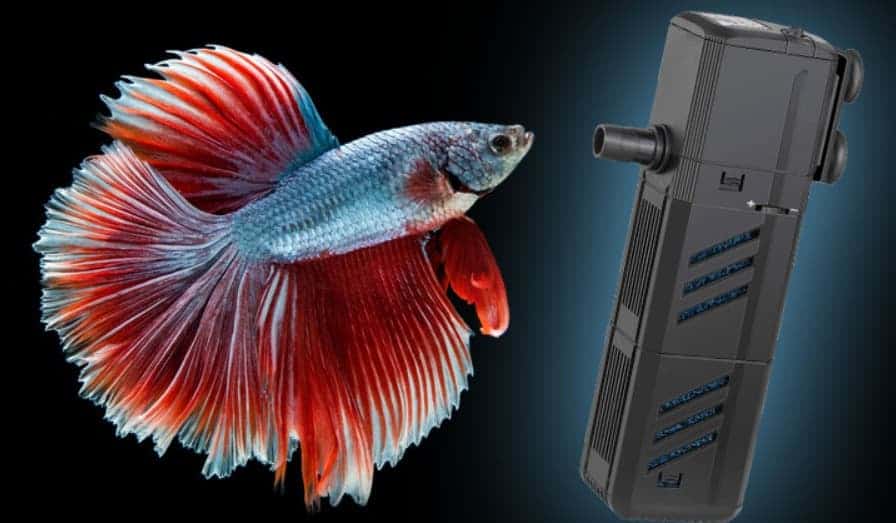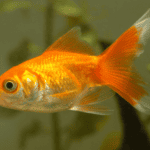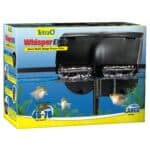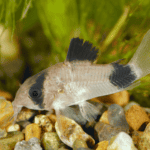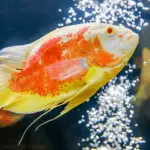Betta fish, also known as Siamese fighting fish, are a common sight in home aquariums, captivating onlookers with their vivid colors and dynamic behavior. We often observe them near aquarium filters, which may lead to various interpretations of their actions. It’s important to acknowledge that while they may appear to be seeking escape or hunting for insects, there are other substantial factors influencing their affinity for this particular area of their tanks.
Through our understanding of betta behavior, we recognize that these fish undergo an adjustment period in their new aquatic settings. During this time, they explore their surroundings extensively, typically gravitating towards the filter. This behavior stems from the filter’s contribution to water oxygenation. The movement and flow created by filters naturally increase oxygen levels, thus creating an environment that can make respiration less taxing for bettas. Additionally, the proximity to the filter may provide a sense of security, offering a semblance of the safe havens they seek in their natural habitats or when in need of protection.
Health Implications
-
Water Quality: Essential for preventing stress and illness in betta fish.
-
Stress: Weakens the immune system, elevating disease risk.
-
Monitor Behaviors: Such as excess filter proximity and erratic swimming for health issues.
-
Proactive Care: Key to address potential bullying, parasites, or poisoning from ammonia or nitrite.
-
Tank Conditions: Critical to observe, as damaged fins or appearance may suggest injury or sickness.
We maintain vigilance to detect and mitigate any detrimental changes in tank environments.
Other Betta Behaviors Around the Filter
- Playing in Current: We often see our bettas swimming vigorously against the filter’s flow, a sign they enjoy the exercise and entertainment it offers.
- Noise Sensitivity: Some bettas may avoid the filter, indicating a possible discomfort with the sound or the water movement.
- Stress Indicators: When bettas appear to constantly struggle in the filter current, it’s a concern they might be experiencing undue stress.
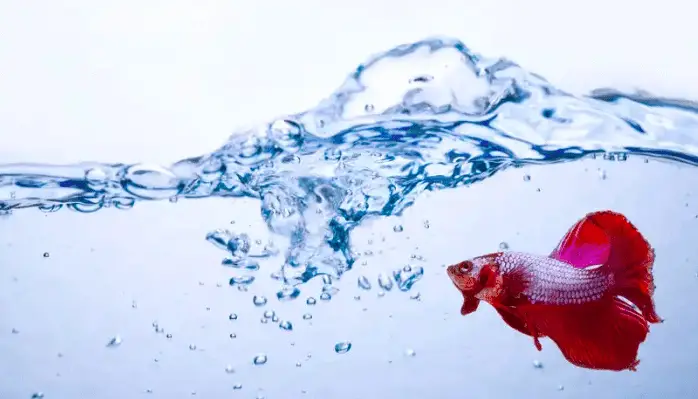
Adjusting the Aquarium Environment
- Tank Size: A spacious environment is crucial for betta exploration.
- Hiding Spots:
- Utilize live plants.
- Add decorative rocks.
- Install betta hammocks for rest.
- Filter Placement: Position strategically to promote full tank usage.
- Water Parameters: Regularly check and maintain:
- Water temperature.
- Flow rate appropriate for bettas.
- Water Quality: Frequent water changes ensure a clean and oxygen-rich environment.
- Lighting: Employ high-intensity lights sparingly to mimic natural conditions without stress.
Types of Filters
We recognize that filtration is crucial for maintaining a healthy aquarium. Here’s a streamlined comparison:
| Type | Flow | Suitability | Baffling |
|---|---|---|---|
| Sponge Filter | Gentle | Stress reduction | Not required |
| Hang-On-Back (HOB) Filter | Variable | Active swimmers | May need baffle |
- Sponge filters are excellent for gentle circulation, providing a calm environment and promoting benevolent bacterial growth.
- HOB filters can be adjusted to create an oxygen-rich habitat but might need a filter baffle to reduce current strength.
- A pre-filter sponge can be added to the filter intake to distribute aeration evenly and protect the inhabitants from being drawn in.
Choosing the right filter ensures the well-being of aquatic life by balancing oxygenation and filtration needs.
Comparison with Other Fish Species
While we may often see betta fish lingering by filters in aquariums, this is linked to their natural instinct to stay near calm water surfaces. Our betta fish friends are unique among many aquatic dwellers; they have evolved to breathe atmospheric air using their labyrinth organ, setting them apart from species that rely solely on gills for oxygen absorbed from water.
Other fish, such as goldfish and tetras, typically demonstrate a preference for consistent water flow. This need stems from their dependence on dissolved oxygen and their origin in environments like flowing rivers or streams. Hence, a diverse array of water conditions are required to satisfy the different respiratory adaptations and natural habitats of these various fish species.
FAQ
How do you keep betta fish away from the filter?
We can minimize the attraction of the filter to betta fish by reducing its flow rate. Our adjustment knob will help to slow down the current in the tank.
What happens if the betta fish swims up to the filter?
Swimming near the filter occasionally is normal for betta fish. If it happens frequently, we adjust the flow to be softer to discourage this behavior.
Is my tank too small for a filter?
Filters are made for various tank sizes. We ensure the proper filter type is selected from options such as high-flow, for large tanks, and medium-flow, for smaller ones which can be seen here: filter types.
Will reducing the filter flow rate affect my betta fish?
Our betta fish remain unharmed when we reduce the filter flow. It merely creates an environment that feels more natural to them.
What do high and medium water flows mean on an aquarium filter?
- High-flow: These are ideal for larger tanks and come with powerful pumps.
- Medium-flow: They are more cost-effective and suitable for a variety of tank sizes.
We opt for a filter with an appropriate flow rate to ensure our betta’s comfort.
Can you make a betta fish go near the filter?
We don’t recommend forcing betta fish near the filter. They prefer their known territory and might get stressed.
How often do betta fish need to be cleaned?
Our betta tanks require cleaning every two weeks and a full water change monthly. The schedule varies based on tank size and fish count.
Should the filter be kept on?
The filter is essential to remain on consistently to maintain a healthy environment for the betta fish.
Conclusion
We recognize that betta fish often congregate near filters, which might be attributed to a few factors. Firstly, the filter outflow likely introduces more oxygen into the water, which is beneficial for their respiration. Secondly, they might find the area near the filter to be a secure zone that aligns with their natural instinct for a safe environment. Lastly, the temperature around the filter may be more to their liking, offering a comfortable habitat. Understanding these tendencies can enhance our care for these aquatic pets.
Frequently Asked Questions
What reasons cause betta fish to hang around the filter area?
Our betta fish may congregate around the filter for various reasons, including:
- Water Quality: They might seek areas with higher oxygen levels or cleaner water.
- Temperature Regulation: They could be drawn to temperature shifts caused by water disturbance.
- Hiding Spot: The filter area might provide a secure territory they want to claim.
Is the water current from the filter affecting my betta fish’s behavior?
Indeed, our bettas can be sensitive to water currents:
- Strong Currents: Can stress our bettas — they prefer calmer waters.
- Adjustments Needed: We can modify the filter flow rate to alleviate this stress.
Could my betta fish’s preference for the filter vicinity indicate a health issue?
If our betta frequently stays near the filter, it may indicate:
- Stress Signs: Such as clamped fins or faded colors.
- Disease Assessment: We should check for illness if they persistently prefer the filter area.
How does the presence of a filter impact betta fish habits and comfort?
A filter impacts our betta fish by:
- Circulation: It can affect their comfort through altering water movement.
- Filtration: Proper maintenance reduces stress and supports their well-being.
What are the signs that a betta fish is using the filter’s flow for play?
We can identify playful behavior in our bettas by:
- Energy: Vigorous swimming and flaring fins in the current without stress indicators.
- Engagement: Interaction with the water current or tank decorations signals play.
Are there specific types of filters that are preferred by betta fish?
When it comes to filters, our bettas prefer:
- Low Flow Rate: Filters should allow for gentle water movement.
- Spacer: Adequate room to swim is vital to avoid the interference of strong currents with their behavior.
